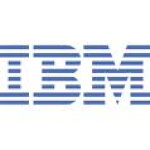- Industrie: Computer
- Number of terms: 98482
- Number of blossaries: 0
- Company Profile:
Sometimes referred to as “Big Blue” IBM is a multinational corporation headquartered in Armonk, New York. It manufactures computer hardware and software and provides information technology and services.
(1) A method valid for an object instance. An instance method that an object responds to is defined by the object's class or is inherited from an ancestor class. See also class method.<br />(2) In object-oriented programming, any method that is started with respect to an instance of a class.
Industry:Software
(1) A class from which another class inherits instance methods, attributes, and instance variables. See also abstract class.<br />(2) The class from which another bean or class inherits data, methods, or both.
Industry:Software
(1) A metric combined with an aggregation type such as average, count, maximum, minimum, sum, or average.<br />(2) Metrics such as count, maximum, minimum, sum, or average that are used in a fact table. Measures can be calculated with an SQL expression or mapped directly to a numerical value in a column.
Industry:Software
(1) A class of objects designated by a specific term or concept; denotation.<br />(2) An element or function not included in the standard language.<br />(3) In Eclipse, the mechanism that a plug-in uses to extend the platform. See also extension point.
Industry:Software
(1) A mode in which a program provides detailed output about its activities to aid a user in detecting and correcting errors in the program itself or in the configuration of the program or system.<br />(2) An environment in which programs can be tested.<br />(3) In DFSMShsm, the method of operation that projects the changes that would occur in normal operation but in which no user data is moved.
Industry:Software
(1) A class or construct that is used to step through a collection of objects one at a time.<br />(2) In a collaboration template's activity diagram, a specialized form of subdiagram that is analogous to a "for" loop and that allows a collaboration to perform an operation on all the attributes of a business object or on all the elements of a business object array. Also, the activity diagram symbol that embeds a reference to a nested diagram that implements such a looping operation, and the diagram that contains the looping behavior.<br />(3) In SQLJ, an object that contains the result set of a query. An iterator is equivalent to a cursor in other host languages.
Industry:Software
(1) A mode of accessing data on a medium in a manner that requires the storage device to access consecutive storage locations on the medium.<br />(2) The retrieval or storage of a VSAM or SAM data record in either its physical order or its collating sequence relative to the previously retrieved or previously stored record.<br />(3) The process of referring to records one after another in the order in which they appear on the file. See also access mode.
Industry:Software
(1) A class representing a thread of control in the system.<br />(2) A class whose instances are active objects. See also active object.
Industry:Software
(1) A mode of operation in which a device can simulate the function of another device or model. The device will function like a different device of the same type, ignoring some or all of the additional features that the device might possess. Compatibility mode permits a migration between devices with minimal impact on programs that have device dependencies. See also page mode, 32-name mode.<br />(2) A mode of processing in which the IEAIPSxx and IEAICSxx parmlib members determine system resource management.<br />(3) A programming model that uses existing Tivoli Distributed Monitoring monitors to gather data that is used to create the dynamic model of a new resource model. This mode is used when migrating from previous versions of Tivoli Monitoring to ensure the compatibility of the new monitoring engine with the existing monitor collection.<br />(4) The first mode of operation in version-to-version migration process, during which DB2 runs the executable code for the new version with preliminary changes to the DB2 catalog. In a DB2 data sharing group, members that operate in compatibility mode can coexist with members that operate at the prior version level. Compatibility mode supports fallback to the prior version of DB2. When operating in compatibility mode, the DB2 subsystem cannot use any new functions of the new version. See also enabling-new-function mode, enabling-new-function mode*, compatibility mode*.
Industry:Software
(1) A class that can be directly instantiated. See also abstract class.<br />(2) A class that is not abstract.<br />(3) A class defining objects that can be created.
Industry:Software
